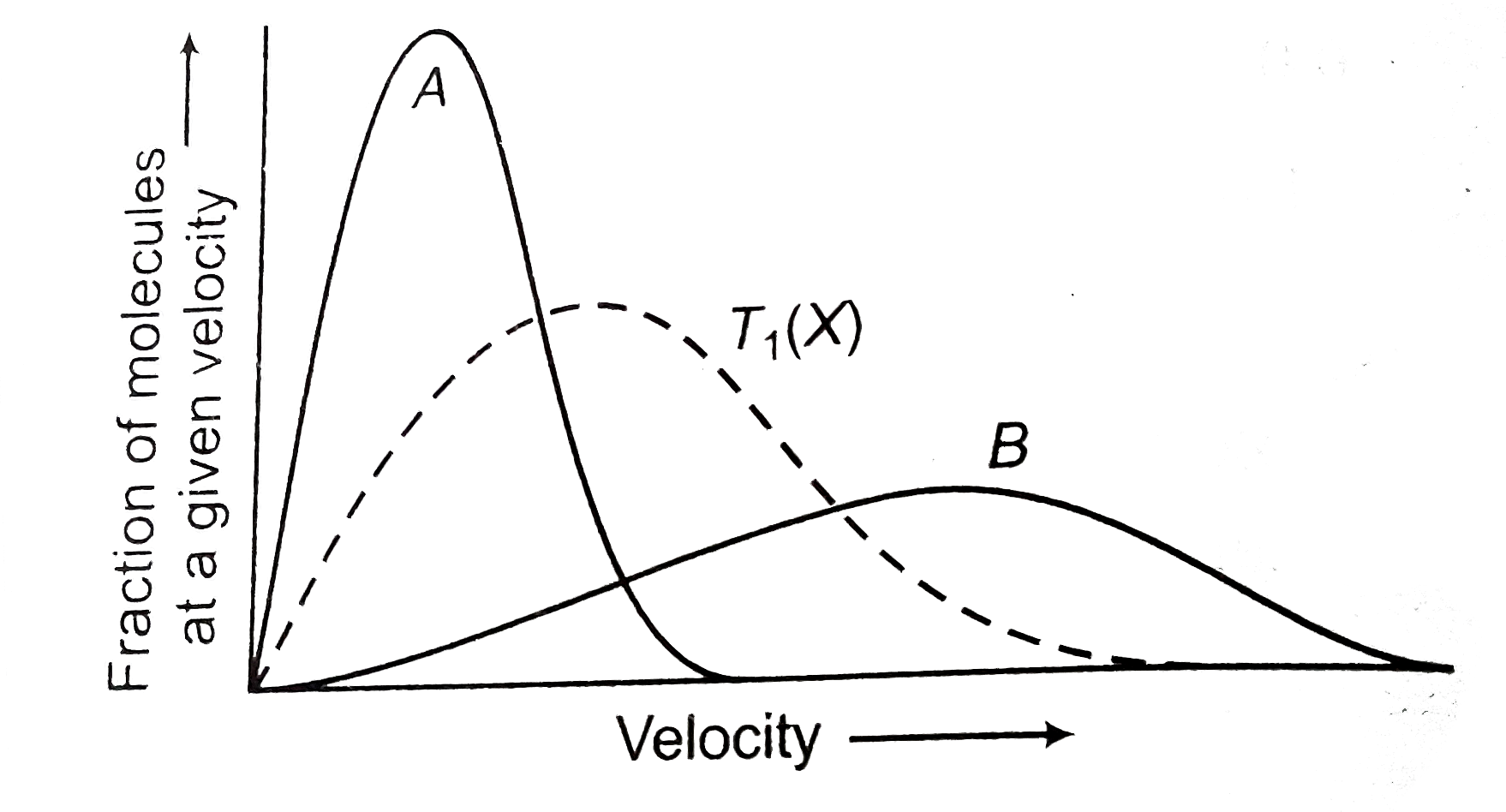Average kinetic energy of a gas is inversely proportional to the absolute temperature.
To determine whether the average kinetic energy of a gas is inversely proportional to the absolute temperature, we can analyze the relationship using the kinetic theory of gases.
1. Understanding Kinetic Energy:
The average kinetic energy (KE) of gas molecules is given by the formula:
KE=32RT
where R is the universal gas constant and T is the absolute temperature in Kelvin.
2. Analyzing the Formula:
From the formula, we can see that the average kinetic energy is directly proportional to the absolute temperature T. This means that as the temperature increases, the average kinetic energy also increases.
3. Considering One Molecule:
If we consider the average kinetic energy of a single molecule, the formula can be expressed as:
KE=32kT
where k is the Boltzmann constant. Again, this shows that the average kinetic energy is directly proportional to the absolute temperature T.
4. Conclusion:
Since both formulas indicate that the average kinetic energy of a gas is directly proportional to the absolute temperature, we conclude that the statement "the average kinetic energy of a gas is inversely proportional to the absolute temperature" is false.
Final Answer:
The average kinetic energy of a gas is directly proportional to the absolute temperature, not inversely proportional.
---
The average kinetic energy (KE) of gas molecules is given by the formula:
KE=32RT
where R is the universal gas constant and T is the absolute temperature in Kelvin.
From the formula, we can see that the average kinetic energy is directly proportional to the absolute temperature T. This means that as the temperature increases, the average kinetic energy also increases.
If we consider the average kinetic energy of a single molecule, the formula can be expressed as:
KE=32kT
where k is the Boltzmann constant. Again, this shows that the average kinetic energy is directly proportional to the absolute temperature T.
Since both formulas indicate that the average kinetic energy of a gas is directly proportional to the absolute temperature, we conclude that the statement "the average kinetic energy of a gas is inversely proportional to the absolute temperature" is false.
The average kinetic energy of a gas is directly proportional to the absolute temperature, not inversely proportional.
Topper's Solved these Questions
- STATES OF MATTER : GASES AND LIQUIDSBOOK - MODERN PUBLICATIONCHAPTER - STATES OF MATTER : GASES AND LIQUIDSEXERCISE - Revision Exercises (Objective Questions)(Fill in the blanks Questions)
10 Videos
- STATES OF MATTER : GASES AND LIQUIDSBOOK - MODERN PUBLICATIONCHAPTER - STATES OF MATTER : GASES AND LIQUIDSEXERCISE - Revision Exercises (Objective Questions)(Assertion Reason Questions)
10 Videos
- STATES OF MATTER : GASES AND LIQUIDSBOOK - MODERN PUBLICATIONCHAPTER - STATES OF MATTER : GASES AND LIQUIDSEXERCISE - Revision Exercises (Objective Questions)(Passage Based Questions)
10 Videos
- SOME BASIC CONCEPTS OF CHEMISTRY BOOK - MODERN PUBLICATIONCHAPTER - SOME BASIC CONCEPTS OF CHEMISTRY EXERCISE - COMPETITION FILE (INTEGER TYPE AND NUMERICAL VALUE TYPE QUESTIONS)
10 Videos
- STRUCTURE OF ATOMBOOK - MODERN PUBLICATIONCHAPTER - STRUCTURE OF ATOMEXERCISE - Unit Practice Test
13 Videos
Similar Questions
The average kinetic energy of a gas molecule is _______ proportional to the absolute temperature of the gas.
View SolutionKinetic theory of gases is a generalization offered by Maxwell. Boltzmann, Clausius, etc. to explain the behaviour of ideal gases. This theory assumes that ideal gas molecules neither attract nor repel each other. Average kinetic energy of gas molecules is directly proportional to the absolute temperature. A gas equation called kinetic gas equation was derived on the basis of kinetic theory
PV=13mv2
The kinetic energy of 2.8 g of nitogen gas at 127∘C is nearly :
View Solution
Knowledge Check
Assertion : The root mean square velocity of an ideal gas at constant pressure varies with density as 1/√d.
Reason : Average kinetic energy of a gas is directly proportional to the absolute temperature.AAssertion and reason both are correct statements and reason is correct explanation for assertion.BAssertion and reason both are correct statements but reason is not correct explanation for assertion.CAssertion is correct statement but reason is wrong statement.DAssertion is wrong statement but reason is correct statement.Kinetic theory of gases is a generalization offered by Maxwell. Boltzmann, Clausius, etc. to explain the behaviour of ideal gases. This theory assumes that ideal gas molecules neither attract nor repel each other. Average kinetic energy of gas molecules is directly proportional to the absolute temperature. A gas equation called kinetic gas equation was derived on the basis of kinetic theory
PV=13mv2
The average kinetic energy per molecule of an ideal gas is equal to :A0.5kJB0.5RTC1.5kTD1.5RT2Kinetic theory of gases is a generalization offered by Maxwell. Boltzmann, Clausius, etc. to explain the behaviour of ideal gases. This theory assumes that ideal gas molecules neither attract nor repel each other. Average kinetic energy of gas molecules is directly proportional to the absolute temperature. A gas equation called kinetic gas equation was derived on the basis of kinetic theory
PV=13mv2
If the absolute temperature of a gas in a fixed volume is quadrupled, then the velocity in intial and final states would be related as :Avf=4viBvf=vi/4Cvf=vi/4Dvf=vi/2
Kinetic theory of gases is a generalization offered by Maxwell. Boltzmann, Clausius, etc. to explain the behaviour of ideal gases. This theory assumes that ideal gas molecules neither attract nor repel each other. Average kinetic energy of gas molecules is directly proportional to the absolute temperature. A gas equation called kinetic gas equation was derived on the basis of kinetic theory
PV=13mv2
Which of the following do not pertain to the postulates of kinetic theory of gaes ?
View SolutionKnowing that average kinetic energy of an ideal gas (X) is directly proportinal to absolute temperature, if T1=273K, which statements describe the other curves?

View SolutionAverage kinetic energy of a gas molecule is
View SolutionThe value of wavelength of maximum energy by a blackbody is inversely proportional to the absolute temperature. This law is
View SolutionMean kinetic energy of a perfect gas is proportional to
View Solution
